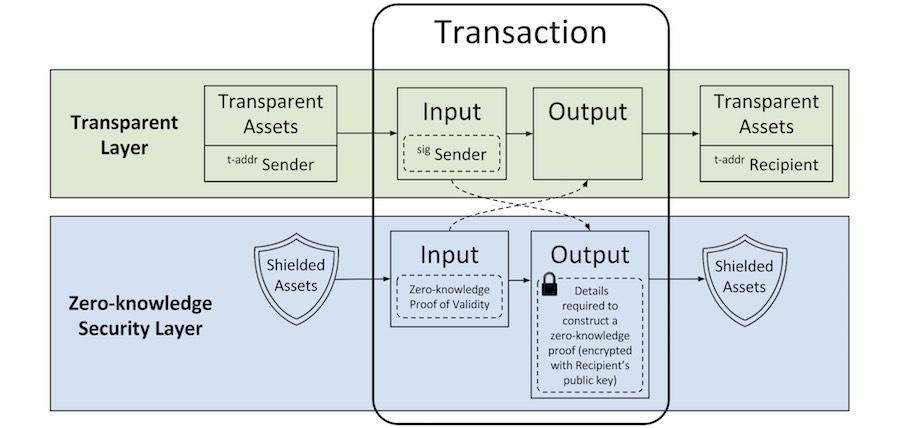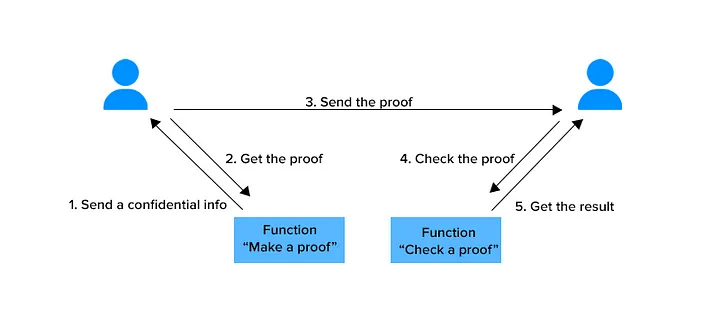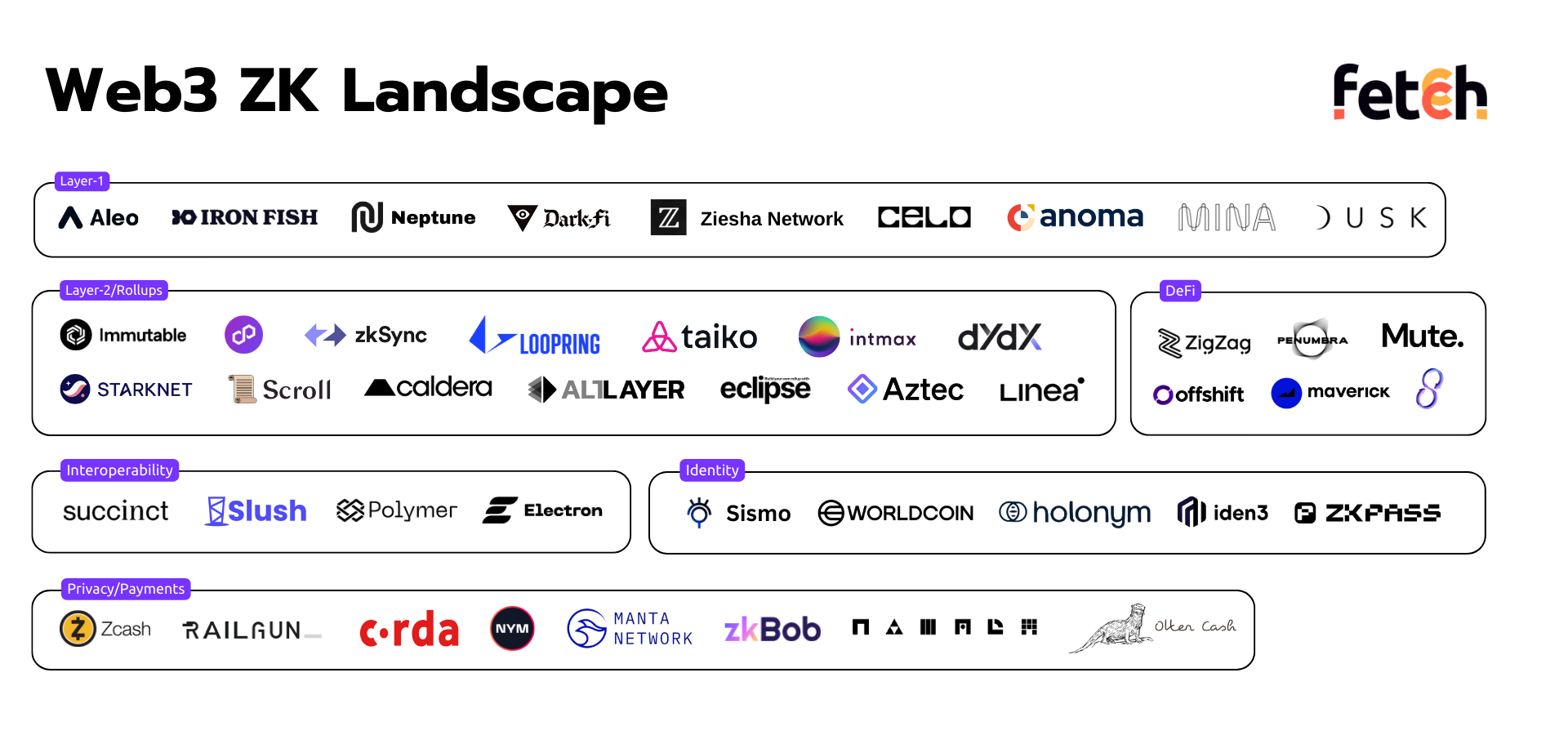ZKPayments provides a revolutionary solution to meet the growing demand for privacy and scalability in Web3 finance.
Original Title: "ZKPayments: Achieving Privacy and Scalability"
Author: Satyam Kulkarni, Fetcch
Translator: Lynn, MarsBit
Introduction
In the rapidly evolving world of Web3, two key challenges have emerged: privacy and scalability. The immutability of blockchain has raised concerns about the privacy of user and corporate data, while the increasing popularity of central bank digital currencies (CBDCs) has added to surveillance concerns.
At the same time, achieving scalability of blockchain networks is crucial for handling the ever-growing transaction volume. Faced with these challenges, zero-knowledge (ZK) payments offer a promising solution to address privacy and scalability issues. This blog explores how ZK payments bridge the gap between transaction confidentiality and transparency in Web3, providing users with the privacy they need without compromising the fundamental functions of blockchain. Additionally, it delves into the potential of ZK-based protocols to enhance scalability, making decentralized applications more practical and accessible.
Understanding Privacy Challenges in Web3 Transactions
Web3 has given rise to a plethora of decentralized applications, DeFi platforms, and NFT markets. However, the transparency of blockchain transactions means that wallet addresses and transaction histories are visible to anyone with network access.
Imagine if your traditional bank account were public, allowing anyone to access detailed information about your financial transactions, including where your money is spent and how much you receive. This scenario is shocking and unacceptable to most people, as it compromises their privacy and security.
Several reasons emphasize the importance of privacy in Web3 transactions:
- Security and Protection: Privacy is crucial for protecting users from potential threats such as hacking, phishing attacks, and doxxing. Shielding financial data ensures that users are less susceptible to targeted threats.
- Business Confidentiality: For companies operating in the Web3 space, maintaining the privacy of transaction details is essential for maintaining a competitive edge and protecting sensitive business information.
- Individual Rights: Just like traditional finance, individuals have the right to financial privacy. Web3 should respect and uphold these rights, allowing users to control their own data.
Rise of Zero-Knowledge Payments
Zero-knowledge proofs can be traced back to the original paper on zero-knowledge proofs [GMR85] in 1985. Subsequently, a simplified ZK proof was proposed in 1992 [K92]. By 2013, zero-knowledge proofs became usable in real life but were slow. In 2016, Groth introduced the Groth 16 algorithm, significantly reducing computational complexity. Since then, zero-knowledge proofs have gradually entered real commercial use.
In the cryptocurrency space, Monero and Zcash have been pioneers in prioritizing privacy in blockchain transactions. Monero (XMR) introduced ring signatures and stealth addresses in 2014, providing a higher level of privacy than traditional blockchains. Zcash (ZEC) emerged in 2016 with zk-SNARKs, offering users the choice between transparent and shielded transactions to strike a balance between privacy and transparency.
Now, zero-knowledge (ZK) rollups and protocols have become promising solutions to address privacy and scalability issues in Web3 transactions. ZK payments use an encryption protocol called zero-knowledge proofs, allowing one party to prove the validity of a statement to another party without revealing any sensitive information.

How Does ZK Achieve Scalability and Privacy?
Imagine having a magic box that can perform computations in secret. This box can prove to anyone that a certain statement is true without revealing any details about how that conclusion was reached. This is the basic idea behind zero-knowledge proofs.
Now, let's relate this to blockchain payments. When you want to make a payment using blockchain, you typically need to prove that you have enough funds to execute the transaction. In traditional blockchains like Bitcoin, this involves revealing your account balance.

In its basic form, a zero-knowledge proof consists of three elements: prover (secret information), challenge, and response.
- Prover: Through zero-knowledge proofs, the prover wants to prove knowledge of some hidden information. The secret information is the "witness," and the prover establishes a series of questions based on the assumption of knowledge of the witness, which can only be answered by someone who knows that information. Thus, the prover initiates the proof process by randomly selecting a question, computing the answer, and sending it to the verifier.
- Challenge: The verifier randomly selects another question from the set and requests the prover to respond.
- Response: The prover accepts the question, computes the answer, and returns it to the verifier. The prover's response allows the verifier to check whether the former can truly access the witness. To ensure that the prover does not guess blindly and accidentally obtain the correct answer, the verifier will choose more questions to ask. By repeating this interaction multiple times, the likelihood of the prover fabricating knowledge of the witness significantly decreases until the verifier is satisfied.
Currently, there are several popular ZK-based protocols, including zk-SNARKs (zero-knowledge succinct non-interactive arguments of knowledge), zk-STARKs (zero-knowledge scalable transparent arguments of knowledge), and Bulletproofs.
In the context of blockchain, they allow users to prove the validity of transactions without revealing the sender's real address. This feature can batch multiple transactions into a single proof, reducing computational expenses and significantly improving scalability. By aggregating multiple transactions into a single proof, ZK payments can alleviate the burden on blockchain networks and increase transaction throughput. This enhanced scalability can lead to faster confirmation times and lower transaction fees, making decentralized applications more practical and accessible to users.
What is Zero-Knowledge Proof (ZKP)? https://ethereum.org/en/zero-knowledge-proofs/
Zero-Knowledge Rollup? https://ethereum.org/en/developers/docs/scaling/zk-rollups/

Case Study - ZkBob
ZkBob is a privacy-focused application that utilizes zero-knowledge proofs (zkSNARKs) and stablecoins for confidential transactions. Its core components include the zkBob contract for processing transactions, the BOB token with privacy features, a Relayer for secure transmission and abstracting gas fees, an AccessManager for access control, and a UI for user interaction. It ensures private transactions and neutrality at the base layer.
Let's take a look at the scenario of Alice and Carl using zkBob for private transactions.
Scenario: Alice wants to send a transaction to Carl without revealing transaction details such as the amount, sender, or recipient information. They decide to use zkBob to achieve this level of privacy.
Transaction Flow
Creating Accounts:
- Alice and Carl each use their private keys to create their zkBob accounts.
- These private keys are used to generate proofs, access balances, and execute transactions.
- Generating Addresses:
- Alice generates a new private zkBob address to receive incoming transactions through the application's UI.
- This address is unique for the transaction and cannot be linked to Alice's main account.
- Deposit:
- Alice initiates a deposit transaction from her regular Ethereum wallet to the zkBob Pool contract.
- She approves the contract to access the funds and completes the deposit.
- Transfer Request:
- Alice wants to send a private transaction to Carl.
- She uses her private key and the zkBob application to generate a zk proof for this transaction.
- Relayer Interaction:
- Alice anonymously sends the zk proof to a relayer (a trusted intermediary).
- The relayer receives and processes the proof without knowing the transaction details.
- Transaction Publication:
- The relayer publishes the transaction to the zkBob contract without revealing the transaction details.
- The zkBob contract verifies the zk proof and updates the transaction details without disclosing the amount or participants.
- Receiving Transactions:
- Carl generates a new private zkBob address to receive incoming transactions through the application's UI.
- This ensures that his receiving address is not linked to his main account.
- Transaction Completion:
- The zkBob contract updates the balances of Alice and Carl without revealing transaction details.
- Carl can now see that he has received a transaction, but the transaction details remain confidential.
- Withdrawal Option:
- If Carl wants to use the received transaction in public, he can initiate a withdrawal transaction.
- This withdrawal will generate a zk-proof showing ownership of the transaction, allowing him to convert it into a publicly usable form.
Throughout the process, using zero-knowledge proofs (zkSNARK), transaction details, sender, and recipient information remain private. The relayer ensures transaction processing without revealing sensitive details, and the zkBob contract maintains the integrity of transactions while preserving the privacy of the involved users.
Case Study - WaaS Pay
WaaS Pay is a smart contract account deployment platform designed for organizations seeking instant blockchain payments while prioritizing privacy, utilizing the Safe{Core} protocol suite and Safe{Core} account abstraction SDK. It provides a user-friendly, no-code interface to customize smart contract account functionalities, such as social login, fiat on/off ramps, and gasless transactions for recipients. By facilitating anonymous transactions through zero-knowledge proofs (ZKP) like zkBob, WaaS Pay ensures that sensitive financial data remains secure and confidential. The platform is supported by Polygon zkEVM to guarantee scalability and efficiency, while self-hosted IPFS nodes with Helia protect sensitive metadata.
For more information: https://ethglobal.com/showcase/waas-pay-br0qs
Advantages of Zero-Knowledge Payments
- Enhanced Privacy: ZKPayments provides a high level of privacy by keeping transaction details confidential, protecting users from potential privacy breaches and data exploitation.
- Increased Security: By concealing sensitive transaction data, users can reduce the risk of targeted attacks, ensuring a more secure environment for conducting Web3 transactions. Additionally, ZKPayments can help mitigate the prevalent front-running and maximizing extractable value (MEV) issues in Web3.
- Transparency and Compliance: ZKPayments achieves a balance between providing transaction transparency to relevant parties while protecting user privacy. This helps businesses meet regulatory compliance requirements without sacrificing confidentiality.
- Enhanced User Experience: Reduced computational requirements by ZKPayments result in lower transaction fees and improved scalability. Combined with use cases like ERC4337, as shown in the case study above, these applications provide a smoother experience for users and businesses, encouraging higher adoption and usage rates.
Primary Use Cases
- Confidential Personal Transactions: These protocols ensure private purchases and payments without disclosing financial details to third parties, ensuring maximum privacy.
- Privacy-Preserving Token Swaps: These protocols support private token swaps, protecting transaction history and holdings, enhancing financial privacy.
- Private Crowdfunding Campaigns: Through these protocols, crowdfunding campaigns can maintain the anonymity of donors while transparently disbursing funds, ensuring a trusted private fundraising process.
- Private Payroll: These protocols allow businesses to prudently make payments to contractors or employees, protecting payment amounts and recipient details.
- Audit Rewards for Contributors: These protocols simplify private multi-party transfers, ensuring confidentiality while auditing contributions.
- Open Source Fundraising and Grants: These protocols provide secure and private token requests for investors, verifying fund security through proof of solvency while maintaining transaction confidentiality, fostering trust in fundraising and grant management.
Challenges
Zero-knowledge (ZK) payments provide private Web3 transactions but bring compliance challenges. Meeting AML/KYC requirements, tax compliance, sanction screening, data retention, cross-border regulations, and addressing criminal use are crucial. Collaboration with regulatory bodies, dynamic compliance, and robust security can ensure responsible usage. ZKPayments reshapes digital finance while protecting user privacy and complying with the law.
How to Address Compliance Issues? Case Study (zk.money)
To ensure compliance with UK laws and regulations, Aztec Network implemented a comprehensive approach to balance privacy and prevent illicit activities on its privacy-focused DeFi dApp zk.money.
Actual Deterrent Measures:
- Ensuring user access to on-chain privacy while preventing money laundering and illicit activities.
- Current Efforts: Deposit limits on every transaction at http://zk.money.
Measures:
- Daily asset deposit limits across the system.
- IP-specific deposit rate limits.
- Pending deposit limits per address.
- Escape hatch limits.
- Slow deposit and withdrawal rates.
- Easy identification of risky addresses.
- Preventing illicit users from bypassing Aztec's aggregation Falafel.
Conclusion
In conclusion, ZKPayments provides a revolutionary solution to meet the growing demand for privacy and scalable options in Web3 finance. By seamlessly integrating privacy and transparency through zero-knowledge proofs, users can conduct secure and efficient transactions while preserving sensitive information. ZKPayments is committed to compliance and user-centric principles, paving the way for a decentralized future prioritizing privacy, fostering trust, and responsibly reshaping the digital finance landscape. Embracing ZKPayments opens the door to a more secure, user-friendly Web3 ecosystem, bringing a brighter, more inclusive financial future for everyone.
免责声明:本文章仅代表作者个人观点,不代表本平台的立场和观点。本文章仅供信息分享,不构成对任何人的任何投资建议。用户与作者之间的任何争议,与本平台无关。如网页中刊载的文章或图片涉及侵权,请提供相关的权利证明和身份证明发送邮件到support@aicoin.com,本平台相关工作人员将会进行核查。




